Photo
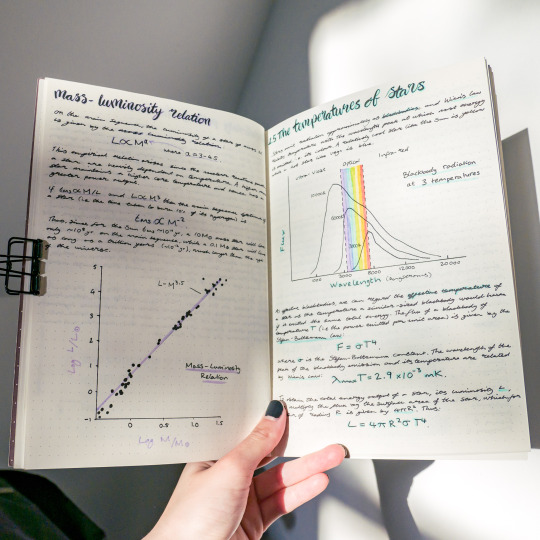

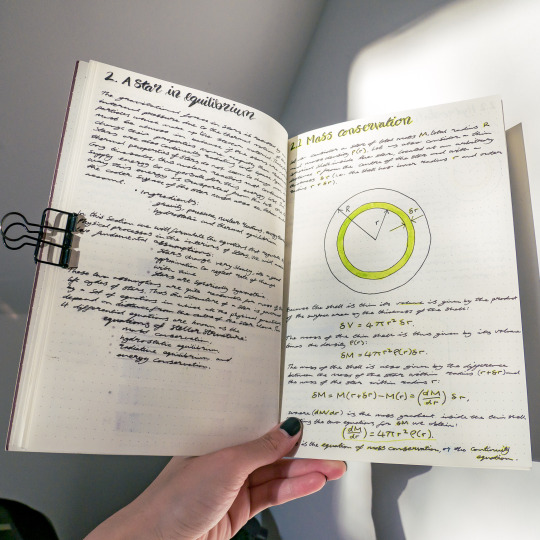
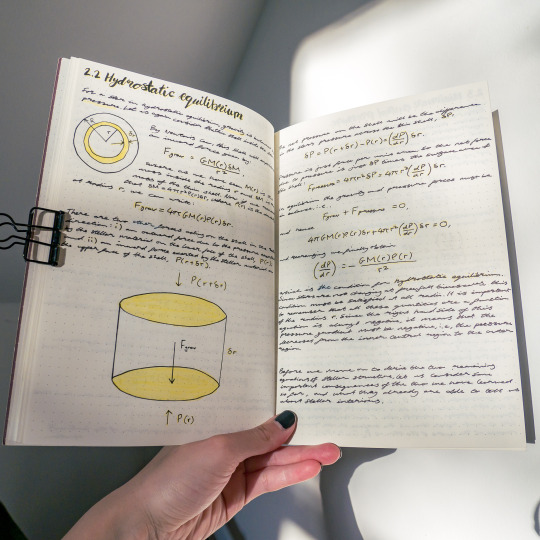
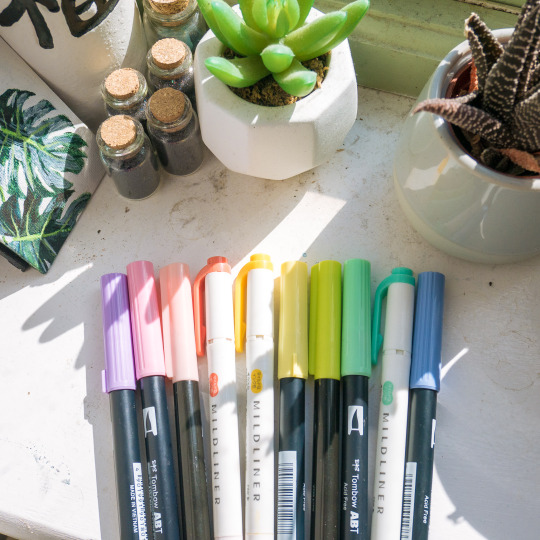




05.06.20 // 42/100 days of productivity
part 1 of stellar structure notes. my favourite and most aesthetic module, as you can tell by the fact it makes up most of my posts. also ignore my weird hands, its so hard to hold something open and take a picture at the same time asdhsafgkjd
2K notes
·
View notes
Text
AFRICAN & BLACK PHILOSOPHY: Getting Started
Hello everyone! As many of us who study philosophy in some form are likely aware, people of color, especially black philosophers, are radically underrepresented in the field (composing only 1.32% of all philosophers in the US). In order to combat such marginalization, and in attempt to help amplify black voices within the field of philosophy, I have complied a series of links & information here for learning more about African/black philosophy, especially within the US. Please feel free to add to this post if you feel that anything is missing, esp if ur a black person!
Overview:
According to Wikipedia.org: “African philosophy is the philosophical discourse produced by indigenous Africans and their descendants, including African Americans. African philosophers may be found in the various academic fields of philosophy, such as metaphysics, epistemology, moral philosophy, and political philosophy. One particular subject that many African philosophers have written about is that on the subject of freedom and what it means to be free or to experience wholeness.”
Articles to start with:
“What African Philosophy Can Teach You About the Good Life.”
“A truly African philosophy.”
“African Philosophy.”
“Descartes was wrong: ‘a person is a person through other persons.’”
“Does Western Philosophy Have Egyptian Roots?”
“What You Should Know About Contemporary African Philosophy.”
“Philosophy in Africa - A Case of Epistemic Injustice in the Academy.”
“The African Enlightenment.”
“The Radical Philosophy of Egypt.”
“The first God.”
“African Philosophy Is More Than You Think It Is.”
And some introductory texts:
Barry Hallen, A Short History of African Philosophy. Bloomington and Indianapolis: Indiana University Press (2009).
Samuel Oluoch Himbo, An Introduction to African Philosophy. Lanham et al.: Rowman and Littlefield (1998).
Dismas Masolo, African Philosophy in Search of Identity. Bloomington and Indianapolis: Indiana University Press (1994).
Kwasi Wiredu, A Companion to African Philosophy. Malden, Oxford, Victoria: Blackwell Publishing (2004). (PDF version linked here.)
Key essays:
“The Struggle for Reason in Africa” by Mogobe Ramose in The African Philosophy Reader eds. P.H. Coestzee & A.P.J. Roux
“Appeal,” David Walker
“What to the Slave is the 4th of July?”, Frederick Douglass
“Ain’t I a Woman?”, Sojourner Truth
“The Black Woman’s role in the Community of Slaves,” Angela Davis
The Souls of Black Folk by W.E.B. DuBois (first chapter esp.)
“A Problem of Biography in African Thought” & “What Does It Mean to Be a Problem?” by Lewis Gordon in Existentia Africana
“Racism and Feminism,” by bell hooks in the PDF linked here
“Recognizing Racism in the Era of Neoliberalism,” Angela Davis
“Nonviolence and Racial Justice,” Martin Luther King, Jr.
“The Ballot or the Bullet,” Malcolm X
“The Uses of Anger: Women Responding to Racism,” Audre Lorde
“Whiteness as Property,” Cheryl Harris
Important contemporary black philosophers:
Cornel West (political philosophy, philosophy of religion, ethics, race, democracy, liberation theology)
Angela Davis (also a writer and social activist & just a general badass, really worth knowing about regardless of whether or not you have an interest in philosophy)
bell hooks (race, capitalism, sexuality & gender through a postmodern perspective)
Lewis Gordon (Africana philosophy, black existentialism, phenomenology)
Kwame Anthony Appiah (probabilistic semantics, political theory, moral theory, intellectual history, race and identity theory)
Patricia Hill Collins (sociology of knowledge, race, class, gender studies)
John H. McWhorter (linguistics)
George Yancy (Critical philosophy of race, critical whiteness studies, African philosophy, philosophy of the body)
Kwassi Wiredu (African philosophy)
Franz Fanon (20th century Marxism, psychoanalysis, colonialism)
Online podcasts, blogs, & videos:
Podcast on Africana philosophy (the website linked here also contains several useful links and resources for further reading)
Youtube series on African Philosophy
Award-winning blog run by a Nigerian-Finnish woman which “connects feminism with critical reflections on contemporary culture from an Africa-centred perspective.”
Other links & resources:
Journal on African Philosophy
Wikipedia page, which includes a list of African philosophers
History of African Philosophy
Online bibliography on African Philosophy
25 Black Scholars You Should Know
The Collegium of Black Women Philosophers
8K notes
·
View notes
Text
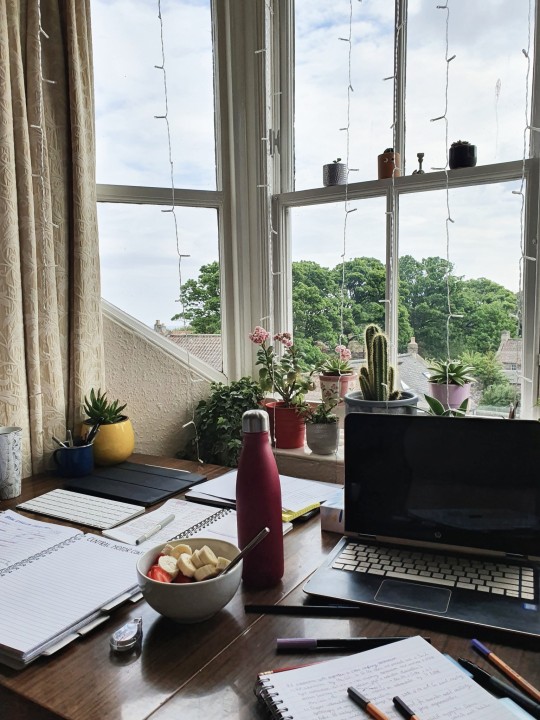

8/5/2020 | 52/60 Days of Productivity
Overwhelmed by the love and support in this community 💕
5K notes
·
View notes
Text
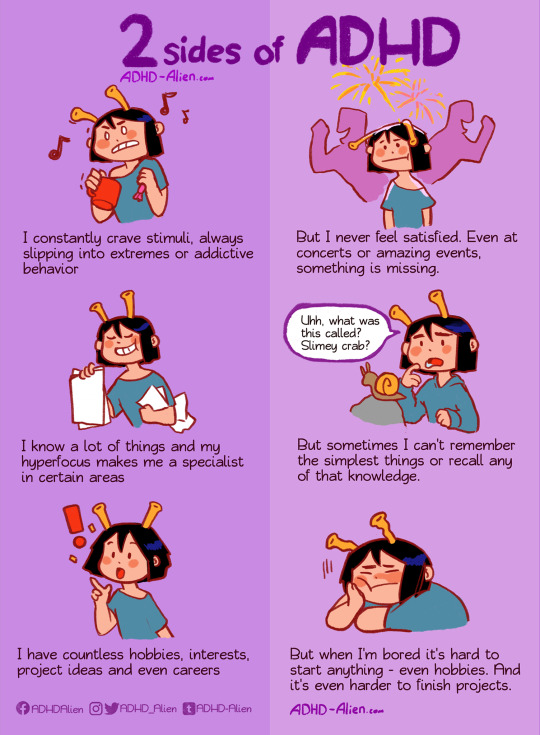
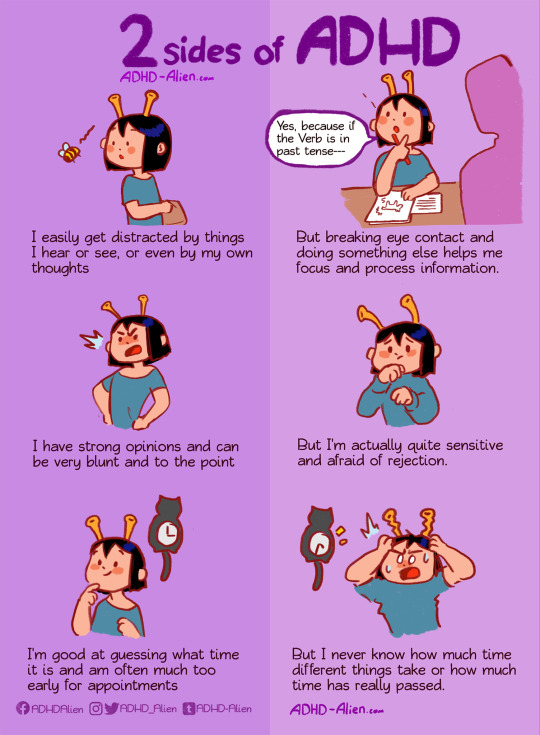
I have so many interests but can never start on any of them. Or, I keep starting projects just to abandon them half way through. More contradicting ADHD things (that drive me nuts)
Almost through with the year! I’m planning a fun themed January, I hope you’ll enjoy it! (RSD is fun, right?). Please consider supporting me on patreon if you like my comics :)
18K notes
·
View notes
Text
How to learn a language when you don’t know where to start:
General Plan:
Weeks 1 and 2:
Purpose:
Learn the fundamentals sentence construction
Learn how to spell and count
Start building a phrase stockpile with basic greetings
The Alphabet
Numbers 1 - 100
Subject Pronouns
Common Greetings
Conjugate the Two Most Important Verbs: to be and to have
Basic Definite and Indefinite Articles
Weeks 3 and 4:
Purpose:
Learn essential vocabulary for the day-to-day
Start conjugating regular verbs
Days of the Week and Months of the Year
How to tell the time
How to talk about the weather
Family Vocabulary
Present Tense Conjugations Verbs
Weeks 5 and 6:
Purpose:
Warm up with the last of the day-to-day vocabulary
Add more complex types of sentences to your grammar
Colours
House vocabulary
How to ask questions
Present Tense Conjugations Verbs
Forming negatives
Weeks 7 and 8:
Purpose:
Learn how to navigate basic situations in a region of your target language country
Finish memorising regular conjugation rules
Food Vocabulary and Ordering at Restaurants
Money and Shopping Phrases
Present Tense Conjugations Verbs
Weeks 9 and 10:
Purpose:
Start constructing descriptive and more complex sentences
Adjectives
Reflective verbs
Places vocabulary
Weeks 11 and 12:
Purpose:
Add more complex descriptions to your sentences with adverbs
Wrap up vocabulary essentials
Adverbs
Parts of the body and medical vocabulary
Tips for Learning a Foreign Language:
Learning Vocabulary:
What vocabulary should I be learning?
There are hundreds of thousands of words in every language, and the large majority of them won’t be immediately relevant to you when you’re starting out.Typically, the most frequent 3000 words make up 90% of the language that a native speaker uses on any given day. Instead try to learn the most useful words in a language, and then expand outwards from there according to your needs and interests.
Choose the words you want/need to learn.
Relate them to what you already know.
Review them until they’ve reached your long-term memory.
Record them so learning is never lost.
Use them in meaningful human conversation and communication.
How should I record the vocabulary?
Learners need to see and/or hear a new word of phrase 6 to 17 times before they really know a piece of vocabulary.
Keep a careful record of new vocabulary.
Record the vocabulary in a way that is helpful to you and will ensure that you will practice the vocabulary, e.g. flashcards.
Vocabulary should be organised so that words are easier to find, e.g. alphabetically or according to topic.
Ideally when noting vocabulary you should write down not only the meaning, but the grammatical class, and example in a sentence, and where needed information about structure.
How should I practice using the vocabulary?
Look, Say, Cover, Write and Check - Use this method for learning and remembering vocabulary. This method is really good for learning spellings.
Make flashcards. Write the vocabulary on the front with the definition and examples on the back.
Draw mind maps or make visual representations of the new vocabulary groups.
Stick labels or post it notes on corresponding objects, e.g when learning kitchen vocabulary you could label items in your house.
How often should I be practising vocabulary?
A valuable technique is ‘the principle of expanding rehearsal’. This means reviewing vocabulary shortly after first learning them then at increasingly longer intervals.
Ideally, words should be reviewed:
5-10 minutes later
24 hours later
One week later
1-2 months later
6 months later
Knowing a vocabulary item well enough to use it productively means knowing:
Its written and spoken forms (spelling and pronunciation).
Its grammatical category and other grammatical information
Related words and word families, e.g. adjective, adverb, verb, noun.
Common collocations (Words that often come before or after it).
Receptive Skills: Listening and Reading
Reading is probably one of the most effective ways of building vocabulary knowledge.
Listening is also important because it occupies a big chunk of the time we spend communicating.
Tips for reading in a foreign language:
Start basic and small. Children’s books are great practice for beginners. Don’t try to dive into a novel or newspaper too early, since it can be discouraging and time consuming if you have to look up every other word.
Read things you’ve already read in your native language. The fact that you at least know the gist of the story will help you to pick up context clues, learn new vocabulary and grammatical constructions.
Read books with their accompanying audio books. Reading a book while listening to the accompanying audio will improve your “ear training”. It will also help you to learn the pronunciation of words.
Tips for listening in a foreign language:
Watch films in your target language.
Read a book while also listening along to the audio book version.
Listen to the radio in your target language.
Watch videos online in your target language.
Activities to do to show that you’ve understood what you’ve been listening to:
Try drawing a picture of what was said.
Ask yourself some questions about it and try to answer them.
Provide a summary of what was said.
Suggest what might come next in the “story.”
Translate what was said into another language.
“Talk back” to the speaker to engage in imaginary conversation.
Productive Skills: Speaking and Writing
Tips for speaking in a foreign language:
If you can, try to speak the language every day either out loud to yourself or chat to another native speaker whether it is a colleague, a friend, a tutor or a language exchange partner.
Write a list of topics and think about what you could say about each one. First you could write out your thoughts and then read them out loud. Look up the words you don’t know. You could also come up with questions at the end to ask someone else.
A really good way to improve your own speaking is to listen to how native speakers talk and imitate their accent, their rhythm of speech and tone of voice. Watch how their lips move and pay attention to the stressed sounds. You could watch interviews on YouTube or online news websites and pause every so often to copy what you have just heard. You could even sing along to songs sung in the target language.
Walk around the house and describe what you say. Say what you like or dislike about the room or the furniture or the decor. Talk about what you want to change.This gets you to practise every day vocabulary.
Tips for writing in a foreign language:
Practice writing in your target language. Keep it simple to start with. Beginner vocabulary and grammar concepts are generally very descriptive and concrete.
Practice writing by hand. Here are some things you can write out by hand:
Diary entries
Shopping lists
Reminders
What could I write about?
Write about your day, an interesting event, how you’re feeling, or what you’re thinking.
Make up a conversation between two people.
Write a letter to a friend, yourself, or a celebrity. You don’t need to send it; just writing it will be helpful.
Translate a text you’ve written in your native language into your foreign language.
Write a review or a book you’ve recently read or a film you’ve recently watched.
Write Facebook statuses, Tweets or Tumblr posts (whether you post them or not will be up to you).
Write a short story or poem.
Writing is one of the hardest things to do well as a non-native speaker of a language, because there’s no room to hide.
There are lots of ways to improve your writing ability, but they can be essentially boiled down to three key components:
Read a lot
Write a lot
Get your writing corrected
28K notes
·
View notes
Text
For all you students who are suddenly finding yourself with online classes, here is list of graduate students who are willing to help out with anyone struggling and our specialties/areas of interests. We’re all colleagues and we’re all in this together! Let’s be a true academic community and support each other as much as possible in the coming months.
ceebycee - introductory physics, modern physics, quantum mechanics, astronomy, calculus (differential, integral, multivariable), linear algebra
@feamir - upper level physics and math
@andbeavillain - anything science and math related up to the university level, editing papers of any subject for clarity and grammar
@softcroft - biochemistry, biology (particularly genomics and transcriptomics), public health, epidemiology, social and behavioural health, PH biostats, organic chemistry, scientific writing, presentations, resume/CV/interview prep for bio sciences, Latin language
@cancerbiophd - biology (human physiology, mammalian cells, biology lab techniques, cancer), fellowship applications, grant writing, presentations, academic/scientific communication
irishfencer456 - biology (genetics, cell biology, signal transduction, intro biology subjects), technical writing, fellowship applications, grant writing, presentations, academic/scientific communication
@studyevergreen - environmental studies, biology, lower level chemistry, physiology, toxicology, environmental education, environmental governance, high school level subjects, proofreading and editing
@adelicateculturecell - general biology, genetics, basic chemistry
@xmarksthenerd - general biology, molecular biology, some orgo and biochemistry, algebra and geometry
thesleepiestsleepscientist - biochemistry, systems neuroscience, human physiology
@my-lions-mane - anatomy, human biology/anatomy, developmental biology, biochemistry, forensic toxicology, microbiology, interviews, applications, and statments
@narrativerehearsal - osteoarchaeology, archaeological science (isotopes, radiocarbon dating), skeletal anatomy and pathology, general archaeology and world prehistory, some medieval history (mainly British), some zooarchaeology
caffeinated-phd - computer science, Java, Scala, Python, C, C++, C#, Haskell, HTML, CSS, JavaScript
@professorerudite - English and Japanese
@myskyisempty - psychology, educational psychology, counseling and education
@gardenforsparrows - outdoor education/recreation, environmental education, environmental science, program evaluation, GIS, lower level english and literature
And speaking for myself, I’m more than happy to chat or answer questions about what I’m studying for anyone who’s curious, regardless of whether or not your studying it!
It you want to be on (or off) this list, just send me a message.
5K notes
·
View notes
Text


feb 14/2019
happy valentine’s day, everyone! whether you celebrate today or not, i hereby send you some extra love just in case - on a side note, i am in love with how the light falls in my room atm it’s just so gorgeous ✨
11K notes
·
View notes
Note
Hello I am a huge fan of your work it is great. Can i ask you some study related tips? If yes, plz can you suggest how do we motivate ourselves while studying? Like,for example, when we have a huge syllabus for the finals, we got to study but somehow cant.. Due to boredom or lack of motivation...
Hey! Here are a few things that might help :-)
a bit of straight talking/tough love
10 small ways to improve your productivity
10 tips to increase your motivation for study
productivity and time management applications
how to remove distractions
types of procrastination and how to deal with them
how to study more effectively
good habits to implement
how to stick to a schedule
how to structure a weekly review
free organisation printables
But look, you have to think realistically. You can’t and never will be motivated 100% of the time. It doesn’t happen that way. If we relied on motivation, we’d be productive for a very limited time. Try to think in terms of action creates motivation, rather than motivation creating action. Start working on a small part, perhaps just looking over one part of syllabus and picking out the key things yo uwant to cover. Of course it is daunting. Seeing everything laid out like a complex treasure map that you’re never going to get through. But slowly working at it is better than leaving it until a point of no return. Once you start doing something, try to figure a way to keep going. Perhaps track your progress each day - journal what you’ve done, how you feel. Watch the time stack up that you’ve worked. The key is to make that time productive. If you work for 3 hours and feel you’ve got nothing done because in reality, you’ve played on your phone, been online shopping, sifted through 10 tasks rather than focusing on one, you’re going to feel it’s a waste and push yourself further into this idea “it isn’t working”, “I’m wasting my time”. Try to set up a small schedule - 20 minutes working, then a 5 minute break. On those breaks, avoid doing something that you may find distracting. This doesn’t mean you can never go on Reddit again during a break but in those initial moments, try to avoid it. Go for a walk around the house instead. Get a tidy. Tidy up your desk and get back to work! You’ll start building momentum when you feel like your time is going somewhere. It is always hard but working towards a balance between studying and fun is what you need! You need to improve that time you spend studying so you can enjoy your life beyond that and not have this guilty feeling! xx
409 notes
·
View notes
Text
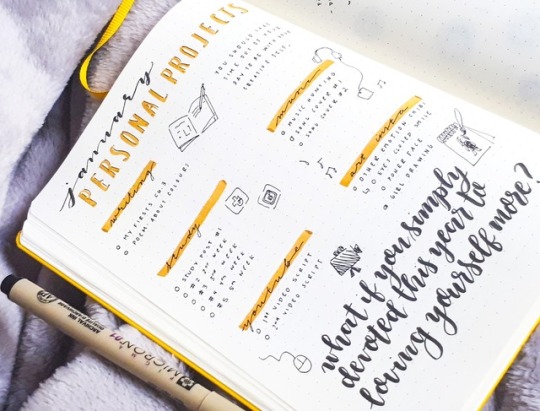

010619 ▪ Sunday
I know I’m back to uni tomorrow but I learned that it’s important to still have hobbies and personal projects I can turn to outside of academics. For sanity and self care’s sake.
2K notes
·
View notes
Text
“Non enim illorum vitio, sed lege mortalitatis patimur quidquid incommodi accidit.”
—
Seneca
It is not because of divine wickedness, but because of the law of mortality, that we endure the awful things we live through.
55 notes
·
View notes
Text
i hate how reward systems never work for me like i can’t just say “if i finish this assignment i can have a cookie” bc my brain is like “…..or u could just have one right now” and i can’t argue with that logic
532K notes
·
View notes
Text
Shout out to my Arabic teacher that looked at us yesterday mid-lesson and said, “I’m worried. You all look exhausted and depressed.”
Of course we were all like, “Oh yeah we’re dead inside, you haven’t noticed?”
And he snapped shut the textbook, threw up his hands and said, “That’s not healthy! No more vocab! Time for dancing!”
And he taught us a dance from Iraq and we danced instead of doing vocab. We didn’t stop dancing until he saw all of us laughing and was satisfied that we were all feeling better. It was perhaps the coolest, most kind-hearted thing I’ve ever seen a college instructor do.
247K notes
·
View notes





